BLOG: Hands-on learning with the Climate Knowledge Network
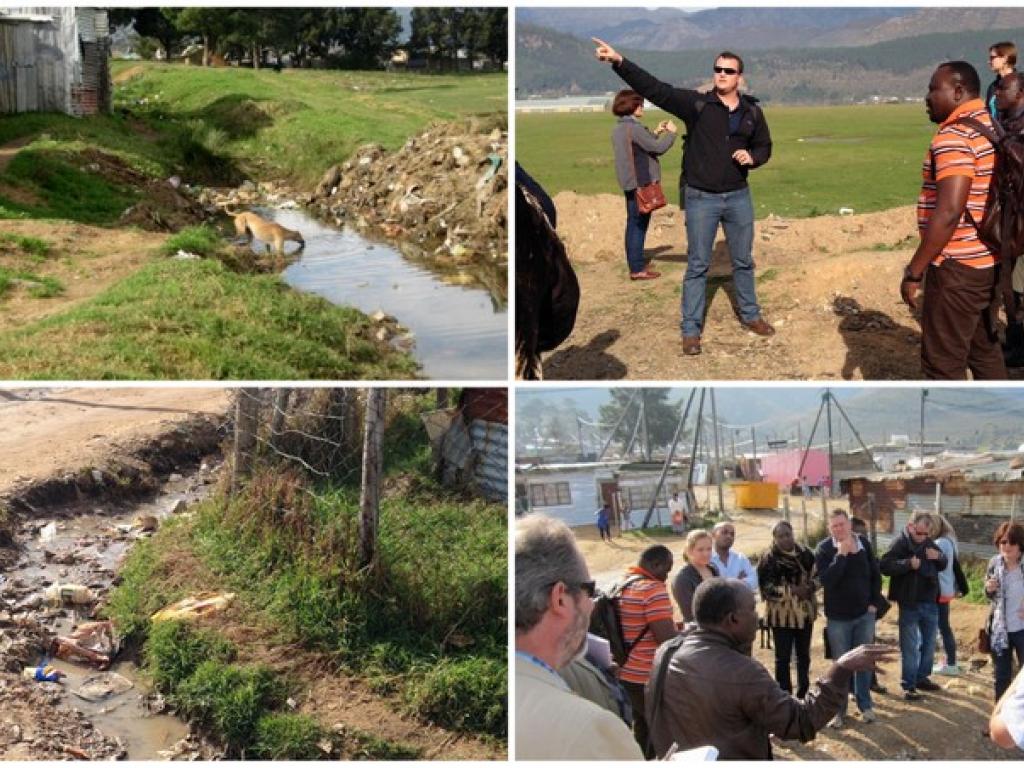
by Kirsty Nortje
The Berg River Climate Knowledge Network (CKN) – hosted and convened by the ACDI – brings together a network of academics, practitioners and civil society members, working within the ambit of the Bergrivier Municipality and the larger West Coast District to facilitate knowledge sharing, relationship building and applied interdisciplinary research.
Describing what we do as a collective or network is often hard, but a network member recently shared the following definition of social learning which resonated with me, as it describes so aptly what we are striving to do as a group.
“Social learning approaches help facilitate knowledge sharing, joint learning and co-creation experiences between particular stakeholders around a shared purpose taking learning and behaviour change beyond the individual to networks and systems. Through a facilitated iterative process of working together, in interactive dialogue, exchange, learning, action and reflection and on-going partnership new shared ways of knowing emerge that lead to changes in practice."
The CKN were recently approached by a Tanzanian group interested in Social Learning and Integrated Catchment Management in South Africa. The party from Tanzania consisted of key individuals associated with the Tanzanian Sustainable Water Access, Use and Management (SWAUM) programme. The SWAUM Project falls under the larger umbrella of work being done by WWF-Tanzania in the Rufigi basin in Tanzania. Their interest had been sparked by the work of the ACDI and CKN in the larger Berg River Catchment – a number of CKN members have worked extensively in the Berg River catchment, a very complex catchment in terms of integrated catchment management and sustainability. As part of a weeklong trip to South Africa (convened and coordinated by John Colvin of the Emerald Network, with the support of WWF-UK and WWF-Tanzania) the Tanzania party joined the CKN for a day on Friday 1 August 2014. What follows is a brief description of what the day entailed:
A (very early) breakfast at UCT provided a space for introductions and presentations by Stephanie Midgley on the FEWLB (Insert link to ACDI research project page) and Annabel Horn of the Berg River Improvement Project.
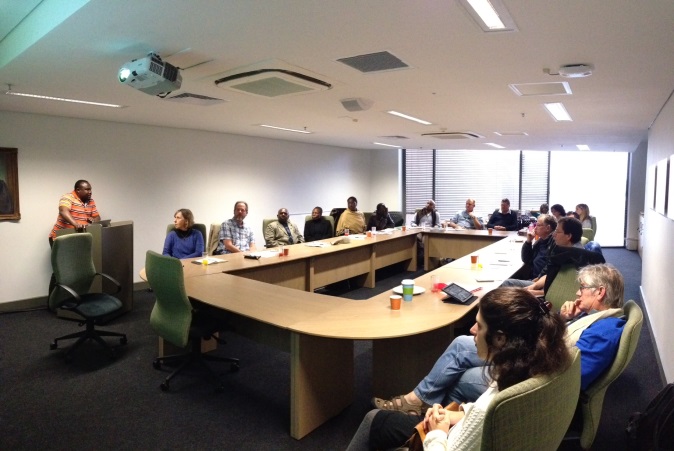
The first stop after breakfast was at the Langrug informal settlement near Franschhoek, where challenges associated with pollution and service provision were discussed. Jason Mingo, a manager on the Berg River Task Team, shared experiences of working in the area and the challenges facing this particular informal settlement.
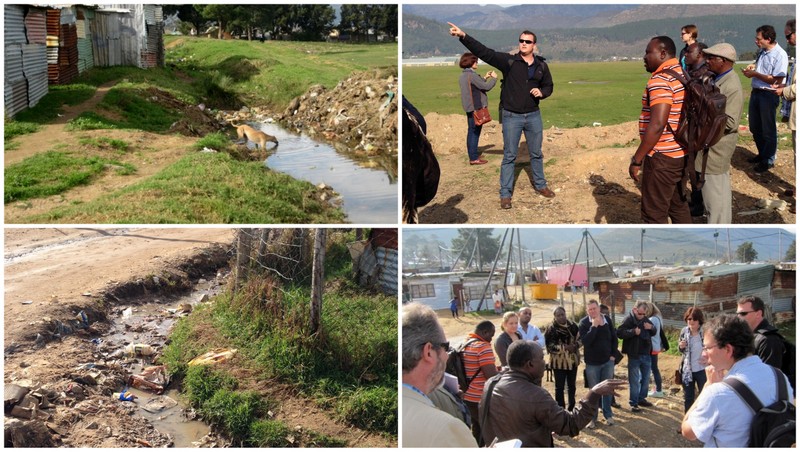
Although the stark challenge of dealing with pollution was evident, there are other elements of water service provision that were inspiring, inclusive and progressive. One example is a community ablution facility that has been built in the community (instead of isolated toilets on the periphery of the settlement as is generally the norm) through a rigorous participatory process.
From Langrug, the group travelled down to the waste water treatment works where innovative and exciting plans to use the soon-to-be decommissioned plant were discussed (picture taking was forbidden here!)
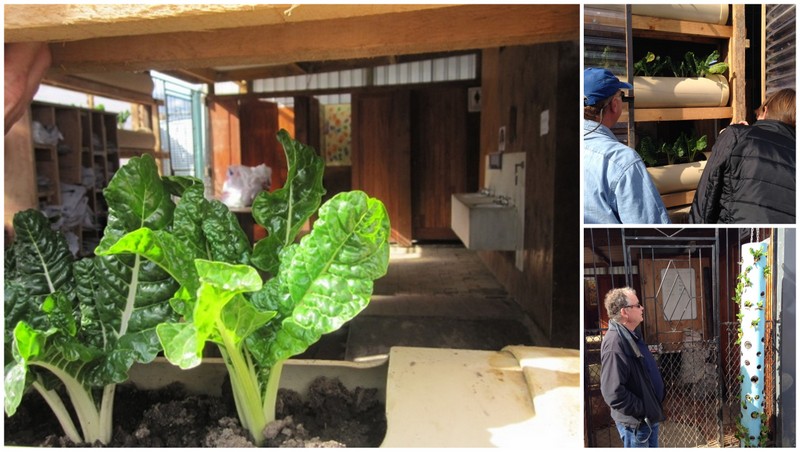
From the treatment works the group drove up to Porterville where the local municiplaity hosted us for lunch. Here, Tracey Stone, the strategic manager of the Bergrivier Municipality, gave a very useful overview of her role in the Bergrivier Municipality, as well as the government structures in South Africa. This was particularly useful for the Tanzanian group as they tried to make sense of the South African government model in relation to the Tanzanian one, in order to compare the two in the context of water resources and catchment management. Dr Gina Ziervogel provided insights into the collaborative adaptation planning processes that have been undertaken in the Bergriver Municipality through the Western Cape Governments’ Municipal Support Programme.
Our final stop for the day was Goedverwacht, a small Moravian Mission town that has some very interesting, complex and even contested water issues. All the land in Goedverwacht is owned by the Moravian church, who have only recently entered into contracts with the small scale farmers in the area. This security of tenure was a significant victory for the community, however, it has brought to light another battle that needs to be fought. It seems to be the case that the Moravian Church owe the Department of Water Affairs a debt in the order of R99 000 for water usage over the past 10 years, a debt for which the community now stand liable in light of recently secured tenure. Negotiations between DWA and the community of Goedverwacht are currently underway to ensure an equitable outcome.
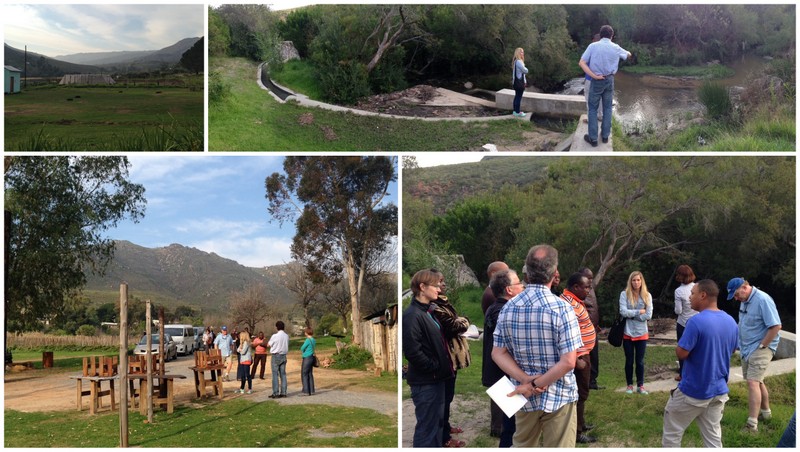
I found the experience to be particulary enriching as I was able to establish a connection to the places and communities we so often speak and write about from inside the ‘ivory tower’. The issues at hand come alive in a new way when you are immersed in the context; standing in the mountains above Goedverwacht, listening to and watching the water rush through the wier down towards the town. The day spent in the Berg River catchment gave me a chance to reflect on the CKN, and to appreciate all the different and unique voices and perspectives in our group – what rich and diverse experiences and expertise they all bring to the table.